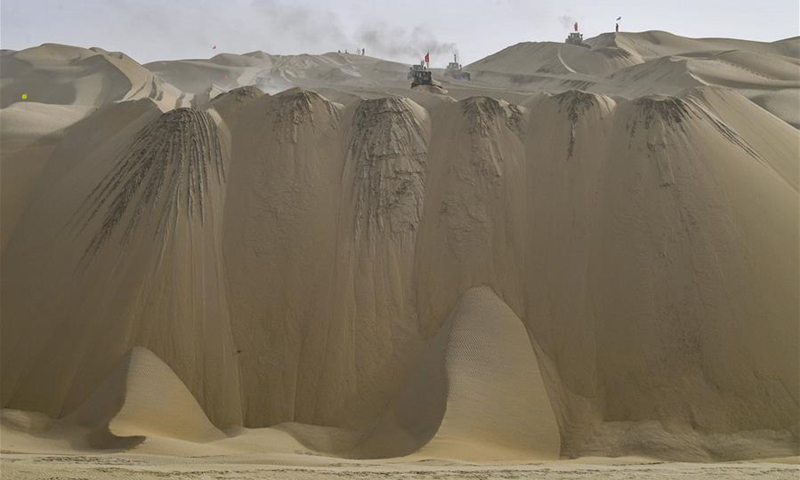Flood in China's northwestern desert subsides, Sinopec's equipment not damaged: company

Workers drive bulldozers at the construction site of a highway in Taklimakan Desert, northwest China's Xinjiang Uygur Autonomous Region, May 16, 2020. The construction of Yuli-Qiemo highway, the third north-south route running through Taklimakan Desert, has entered the final rush. Workers of China Communications Construction Company Ltd. are working on the largest dune in this project, with an estimated volume of 1.2 million cubic meters of sand to deal with.(Photo: Xinhua)
A recent flood that hit an exploration area of a subsidiarity of China's state-owned oil giant Sinopec in the country's largest desert Taklimakan Desert, Northwest China's Xinjiang Uygur Autonomous Region, has subsided, and equipment that was flooded has no substantive damage, Sinopec said on Sunday.
The statement came after heavy rainfall and hail hit a team belonging to Sinopec Geophysical Corp, which mainly engages in geophysical exploration services including geophysical data acquisition, processing and interpretation, on July 14 in the remote desert location.
The team immediately organized emergency rescue. By July 17, it had completed equipment clearance, camp restoration and road dredging, with production back underway, according to the official Weibo account of Sinopec Geophysical Corp on Sunday.
More than 30,000 geophones wading through the flood during the disaster were dried, passed inspection and had been put back in to normal production, it added.
Global Times
